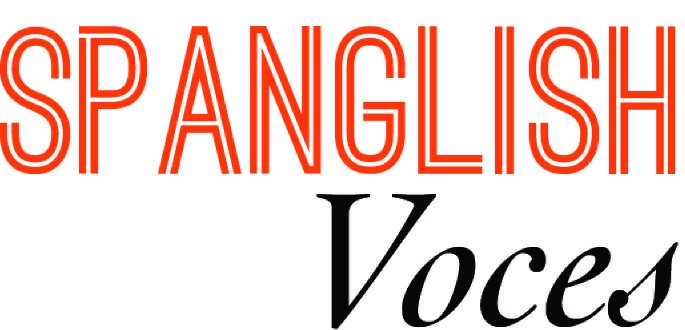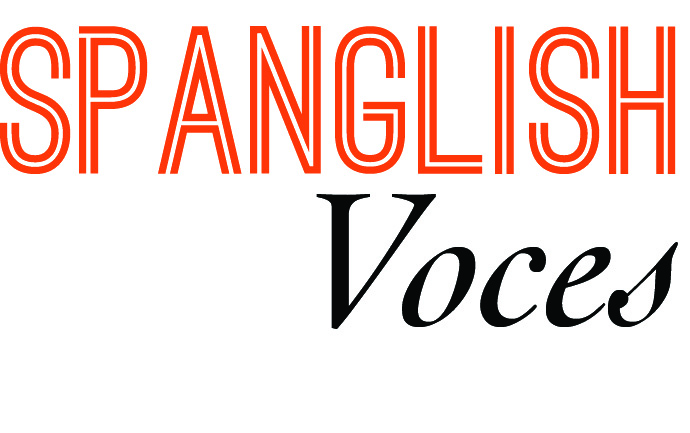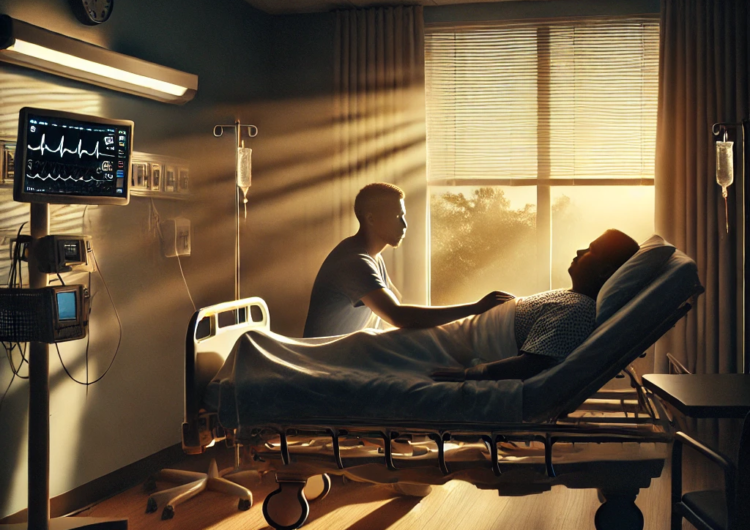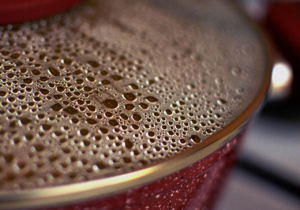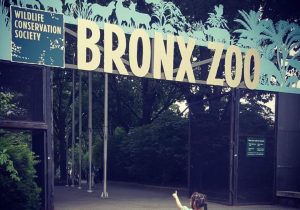The hospital room was quiet except for the steady beeping of the heart monitor and the soft hum of the air conditioning. Outside, the sun was setting, casting long shadows on the walls, but inside, time seemed to stand still.
On TV, these moments usually unfold on stormy days, with heavy rain beating against the hospital window. But today was different. It was sunny and calm, what the weatherman called “a perfect beach or travel day.” For me, though, this day was anything but perfect. My dad was fighting for his life, and I was trapped in the waiting room of uncertainty, desperate for the medical staff to figure out the next steps.
“How are you, Dad?” I asked, already knowing the answer, but needing him to engage, to feel my presence in this battle.
A calm voice interrupted my thoughts as the door opened. “Hello, I’m Dr. Gonzalez, the lead doctor tending to your father.”
“Thank you, Doctor,” I replied, shaking his hand. “I’m Marco. Please, tell me, where does my father’s condition stand?”
Dr. Gonzalez hesitated. “Could we speak outside for a moment?”
His request sent chills down my spine. I’d seen enough medical dramas to know that rarely something good comes from a doctor asking to speak privately.
“I’m going to be very frank with you, Marco…”
The doctor explained that without immediate surgery, my dad wouldn’t survive the night. The aneurysm in his chest was a ticking time bomb, and every minute without intervention brought him closer to the inevitable. But my father had refused the surgery, citing his faith as the ultimate guide for his life.
Faith? It was always my father’s crutch, not mine. I’d walked away from it years ago, during Sunday sermons filled with fire and brimstone. A God didn’t heal the sick; science did. Prayer didn’t save lives; surgery did.
I returned to his bedside, my hands clasped tightly, feeling helpless as I tried to find the right words. Convincing him would be tough. My dad’s faith wasn’t just deep—it was stubborn, a cornerstone of his identity. El viejo es terco como una mula. The surgery required a blood transfusion, a direct conflict with his beliefs. And I, an atheist, feared he would shut me out the moment I challenged his convictions.
“Dad,” I began softly, “I spoke with Dr. Gonzalez and his staff. They told me about the aneurysm. Every minute without intervention is dangerous to your life.”
My father, a man of unshakable faith, shook his head weakly, his eyes closed as he whispered, “For me to live is Christ and to die is gain.” His voice, though frail, carried a conviction that made my stomach churn.
“Please, Dad,” I urged, my voice thick with desperation. “The doctor said the surgery could save you. You don’t have to die like this.”
“No,” he responded sternly, “Acts 15:28–29 prohibits blood transfusions. I don’t want to risk my soul and go to hell, son!”
“But Dad,” I countered, “Exodus 21:19 says, ‘one shall surely heal,’ which gives the physician a mandate to heal you. Refusing medical care might not be faith in your God – it could also be seen as a foolish choice.”
He shook his head, closing his eyes again as if to shield himself from my words. I sighed, running a hand through my hair. I had spent my life distancing myself from the church, from the very faith that now stood between my father and me. Yet, I understood it too well.
“Dad, you always taught me that God gave us free will and helps those who help themselves. Isn’t this surgery just a way of using the tools your God provided? Doctors, medicine—they’re all part of God’s creation. No?”
“You make a good point, mi hijo,” he conceded. “But the fact still stands that God is the one who holds power over life and death. There are limits, and to interfere too much is to show a lack of trust in God’s judgment.”
“Don’t you understand?” I leaned in, my frustration boiling over. “We don’t have to lose you—Mom doesn’t have to lose you! Wouldn’t your God want you to honor your family’s love for you, to fight for us as much as you fight for your faith?”
My father opened his eyes, looking at me with a serene expression that only deepened my anger. “My son,” he began softly, “God’s ways are higher than our ways, and God’s thoughts are greater than our thoughts. If it is God’s will that I leave this world now, then who am I to resist?
I clenched my fists, feeling a mixture of helplessness and rage. “What if this surgery is God’s will, a way of giving you more time with us?”
My father’s breathing grew more labored, each word a struggle, yet his resolve did not waver. “Faith is the assurance of things hoped for, the conviction of things not seen. I trust God’s plan, even when I don’t understand it.”
I felt a lump rise in my throat, my voice cracked. “What about Mom? Me? Don’t we matter?” “Does our love mean so little to you?”
A long silence fell between us, broken only by the sound of the heart monitor, each beep a cruel reminder of the time we were losing. His eyes softened, and he reached out a trembling hand to touch mine. “Mi hijo, it is not that your lives mean little to me. You mean everything to me. But I must trust God’s wisdom, even when it is painful, even when it is hard. I believe God has a purpose in all things, even in our suffering.”
I squeezed his hand, trying to find the right words, trying to bridge the chasm between our beliefs.
“Remember when I was a kid and you stayed up all night to help me when I was sick? You didn’t pray for me to get better, Dad—you held me, made tea, did everything you could. This is the same. You fought for me then, so why won’t you let us fight for you now?”
My father’s eyes drifted closed for a moment, and I thought he might have fallen asleep. But then he opened them again, staring at the ceiling, his brow furrowed in thought. His hand trembled as it rested in mine, his grip weak but still present. It was as if his body were fighting against the time slipping away, even as his spirit sought peace in surrender.
“Marco,” he whispered, his voice barely audible. “You make me doubt.”
The words startled me, cutting through the hum of the machines and the steady beeping of the heart monitor. I leaned forward, gripping his hand tighter. “Dad, doubt isn’t a bad thing. It’s part of faith. It’s part of being human.”
He turned his head toward me, his eyes glassy but focused. “I have lived my whole life trusting in God. Trusting that God’s plan is greater than my own understanding. And now, here I am…” He trailed off, his voice cracking with emotion. “I don’t know. I don’t know if I am holding on to faith or if I am just afraid to let go of what I’ve always believed.” His confession hung in the air, raw and unexpected.
Tears slipped from his eyes, and his lips quivered. He turned his head away, staring at the window where the last light of the setting sun painted the walls in soft hues of orange and gold. “I want to stay,” he whispered, so softly I almost didn’t hear him. “I want to stay with you, with your mother. But… if I stay, am I betraying God? Am I betraying everything I’ve ever believed in?”
I leaned forward, the plea in my eyes matching the intensity of his words. “Choosing to live isn’t letting go of your faith, Dad. You always said that faith is about trust, but it’s also about questioning, about seeking answers. I think your God would understand if you chose to stay. Isn’t that what you would tell your others?”
I felt the air in the room shift—an almost imperceptible pause, as if time itself held its breath. The beeping of the machines filled the silence, each note a cruel reminder of time slipping away. For a moment, his breathing slowed, and his gaze softened. I saw a flicker of something in his eyes—hope, maybe, or just the tiniest sliver of peace. His lips parted as if he were about to speak again, as if he might agree, as if he might give in. But before either of us could speak again, before my dad could find the answer he sought, his chest hitched as he struggled for air. I could see the fight in him—the battle between his body’s instinct to survive and his spirit’s need to surrender. And then, as if the choice had been made for him, his chest fell still.
“Dad?” panic rose in my throat.
A sharp prolonged beep pierced the air, shattering everything. The monitors flashed red, and the nurse rushed in, followed by Dr. Gonzalez. I was pushed aside as they tried to revive him, their actions frantic and focused. But deep down, I knew it was too late. The beeping flattened into a single, unrelenting tone. The nurse turned to me—her expression solemn. I barely registered her words.
I stood frozen, staring at his lifeless form. The debate, the arguments—they felt distant now, swallowed by the finality of death. Had I planted a seed of doubt in his mind, or had I robbed him of peace in his final moments? I’ll never know if I helped him see the world differently or if my words solidified his refusal of the surgery. That uncertainty will haunt me more than any unanswered question ever could.
As I looked at his face, peaceful in death, I whispered, “I hope you found your answer.” And for the first time in years, I prayed—not to any god I believed in, but to the faint hope that, somehow, he’d found peace. His faith had taken him from us, and my words had failed to bring him back.
I guess, in the end, we all leave it up to faith—even when we don’t believe. I walked away, the beeping of the heart monitor faded, leaving only silence—and questions I’d never have the answer to.
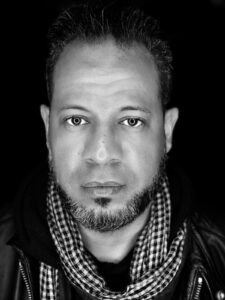 Edwin Rosario Mazara is the founder of Spanglish Voces, a non-profit promoting community building through the arts. He also founded La Sala Talks, an outlet that communicates diverse perspectives within our cultures. Currently serves as a Communications Director at the NY State Senate—an activist who loves reading, la música & conversations & las miles de historias de los desconocidos.
Edwin Rosario Mazara is the founder of Spanglish Voces, a non-profit promoting community building through the arts. He also founded La Sala Talks, an outlet that communicates diverse perspectives within our cultures. Currently serves as a Communications Director at the NY State Senate—an activist who loves reading, la música & conversations & las miles de historias de los desconocidos.
